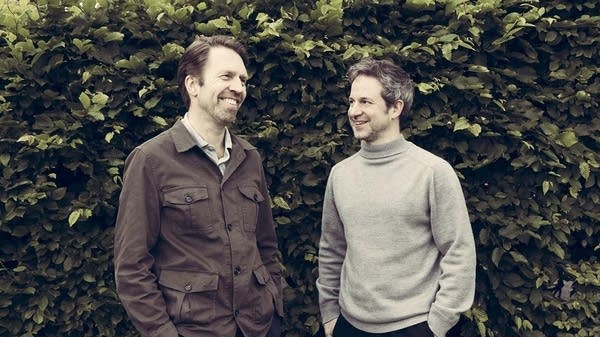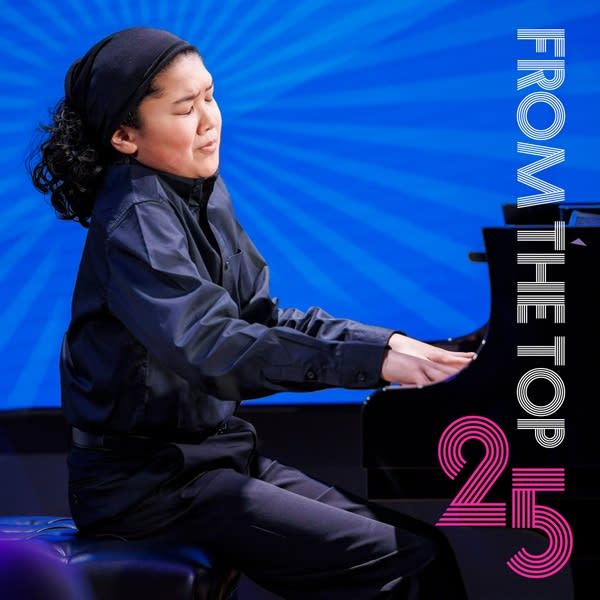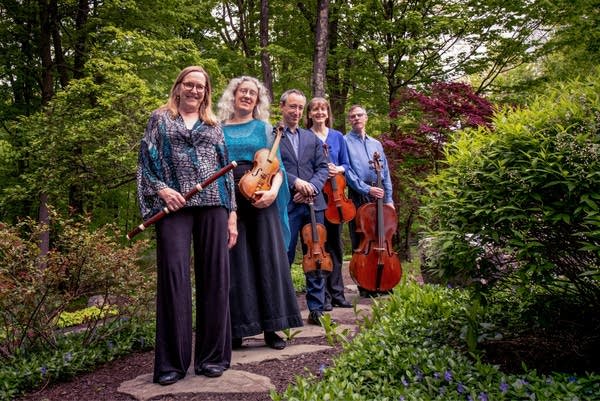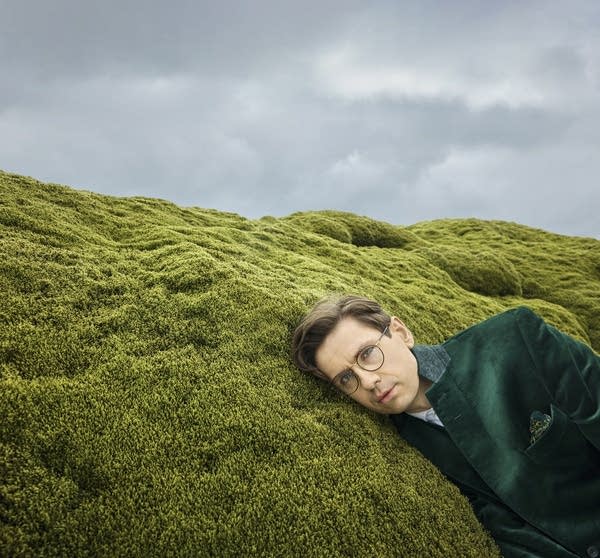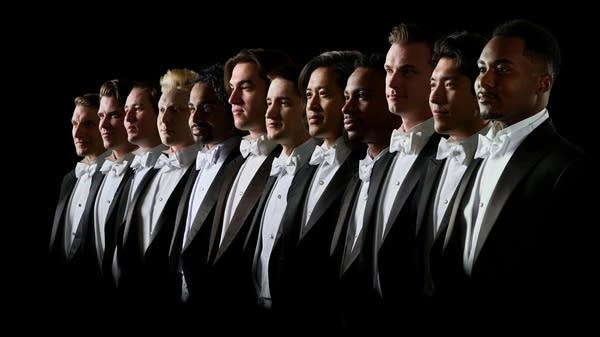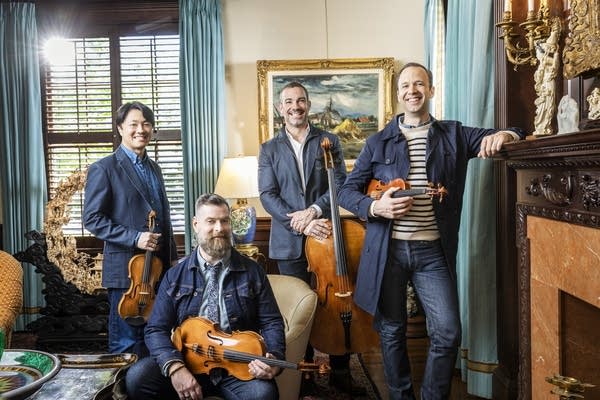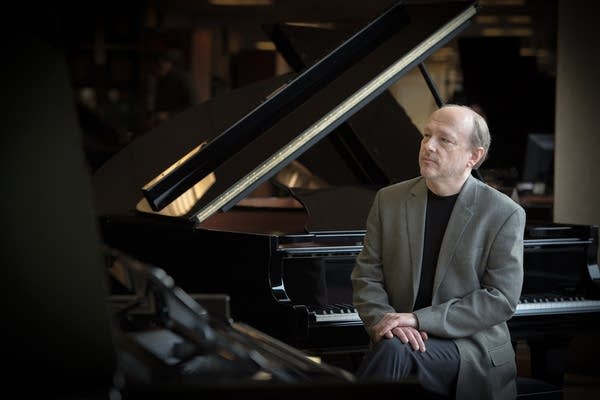
Jan Lisiecki - Chopin Etudes (DG)
Jan Lisiecki is a Canadian-born pianist with Polish roots. On March 23, he'll be 19 years old, yet when he speaks about his new recording of Chopin Etudes, it's quite apparent he is wise beyond his years. "I truly believe that music doesn't have boundaries of age," he clarifies, "and I feel privileged of course — you say that I have an old soul, I think that's a fantastic compliment. But I definitely do not try to bring on purpose a maturity just because. Rather, whatever comes through in the music might be simply the maturity of the pieces themselves. They do have this wisdom within them already.
"I believe that the true genius is in what has already been written, in what the composer put down onto paper. And that is what I'd like to demonstrate in the best possible way, for any audience, be it on CD or live."
As you listen to Jan Lisiecki play these Chopin Etudes, you may be struck by the tempo he chooses, which in many cases is much slower than you might expect. "If you play these études too fast, you miss most of the music," he explains. "But also I never tried to do something that would be impossible in a concert. And I try to do things that would also work on any instrument, in any concert hall and sound in a way that people would understand it."
One thing that's quickly understood in listening to this new recording is that Jan has a real gift for making these études sing. "I think Chopin always told his students to sing. He's quoted as having said all the time, 'Chante, chante,' which means, 'Sing, sing.' And it holds true in these études just as much as it does in every other of his works. Of course sometimes you have to find the melodic line amidst all the thousands of notes he puts in each étude. But once that's been found, that, I think, becomes the central focus. And whatever's around it simply becomes an ornament to that."
If you're looking for your favorite étude, you'll be hard-pressed to find it on this recording under its nickname. Jan intentionally excluded the nicknames in the liner notes. That way, he says, you can rediscover the étude and possibly hear it in a new way, as he has done with the Etude Opus 25, no. 1. "This one has the nickname 'Aeolian Harp,' which in my vision is not accurate," he says. "I see it more as a shimmering surface of water. You have drops of water which fall down every once in a while, that's the right-hand melody, but it has to be extremely calm and it has to have this quality that's not interrupted. You don't suddenly have a waterfall in the middle. It's a still pond. You can see the reflection and sometimes you have a drop of water fall down and create these little ripples. And that's my best interpretation of the étude.
"Opus 25, No. 7 is well known as the 'Cello' étude. Generally I don't like the nicknames for the études because I find they don't describe the pieces as well. But in this case, it's a good name. It is a cello étude. And one can imagine that Chopin dreamed of writing such a piece for the cello. With the left hand doing so much of the singing and the right hand having an additional melody, my favorite story is as if one could imagine two parents, a father and mother, with the father being the left hand and the mother being the right hand and in the middle you have the heartbeat of this relationship or of the family.
"But it capitalizes on one of the better parts of the piano as an instrument, one that is very underused. Usually we don't have long soaring melodic lines in the left hand, usually that is something we have in the right hand. And it's something which Chopin also demonstrates: this technique in the left hand and how to make the left hand equal, and equally dolce and cantabile in the right hand."
Chopin's Etude No. 3, Opus 10 was the first étude Jan ever learned. Those tender memories come through in his performance. "I've always thought about it as the green étude," he admits, "It was bound on green paper and it has always remained in my mind. And actually I think that's a very accurate color for this étude.
"It's in this very small form that Chopin has managed to do something which is quite extraordinary. We have this exposition which demonstrates the beautiful subject, then the development which cries out in pain, and then we return. That's a common theme in these études — that you have a very tumultuous area in it and somehow one has to come to peace at the end. And it's something I think is also relevant to Chopin's life. He was always struggling to come to terms with his physical condition, with his writing, I think. And I think that's definitely demonstrated in the most pure and natural way in these études."
"The Finest Instrument is the mind" — that's the motto of the Royal Conservatory in Toronto where pianist Jan Lisiecki studies, and where he made this memorable new collection of Chopin Etudes. "In my school there's a beautiful new hall called Koerner Hall, and it's a recital hall, a chamber music hall," he says. "The sound is pure, natural, pristine, unclouded and you don't have to work hard to make it get to the last row in the audience. I play many concerts in a year and in various concert halls in the world, but most of them don't give me as much pleasure as this hall did and that's something which I appreciate every moment of."
Love the music?
Show your support by making a gift to YourClassical.
Each day, we’re here for you with thoughtful streams that set the tone for your day – not to mention the stories and programs that inspire you to new discovery and help you explore the music you love.
YourClassical is available for free, because we are listener-supported public media. Take a moment to make your gift today.
Your Donation
About New Classical Tracks®
Host Julie Amacher provides an in-depth exploration of a new classical music release each week.
Subscribe on Apple Podcasts, TuneIn, Radio Public, or RSS.


